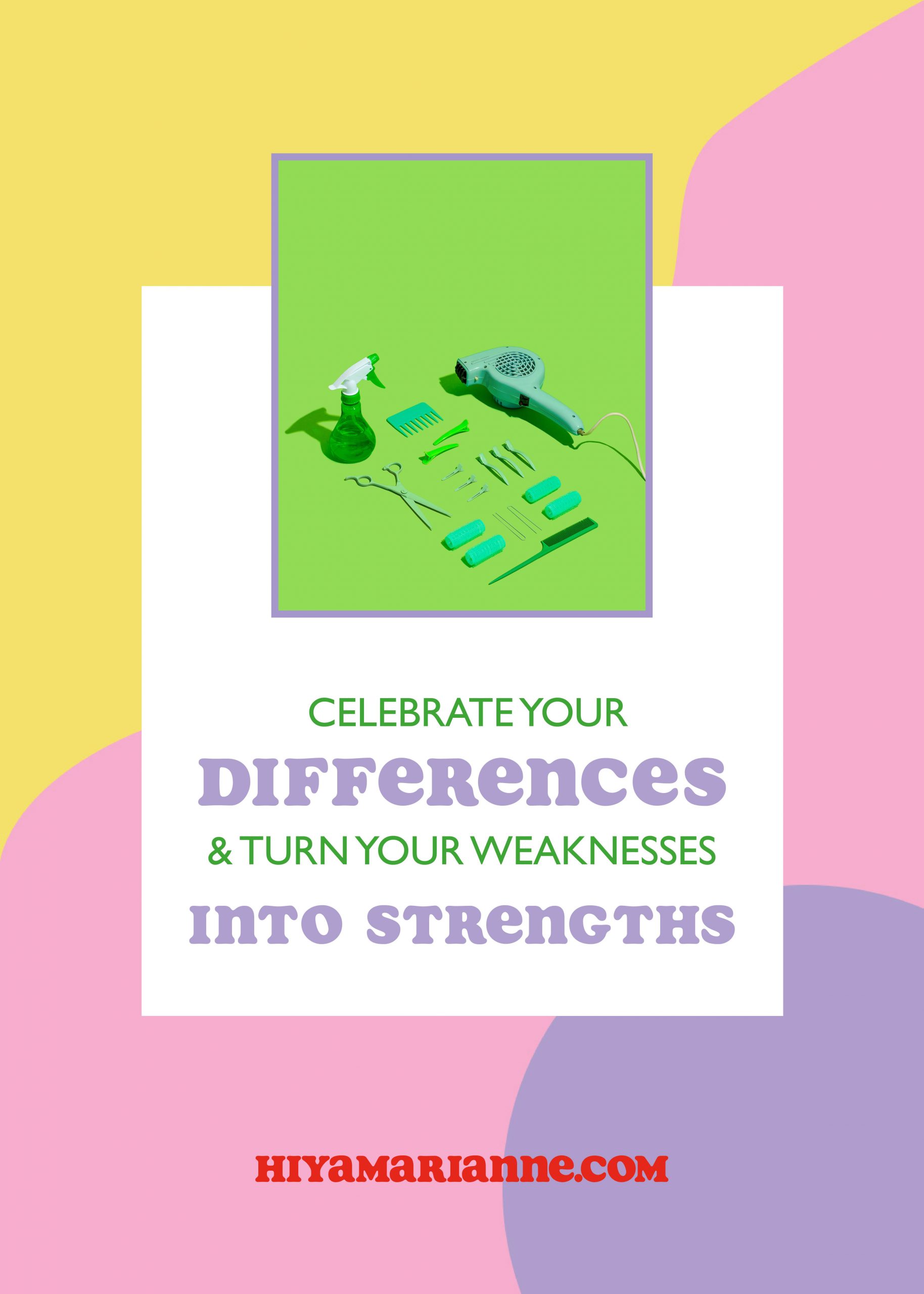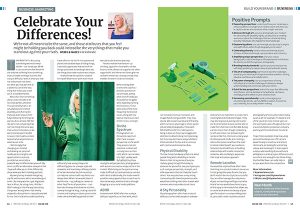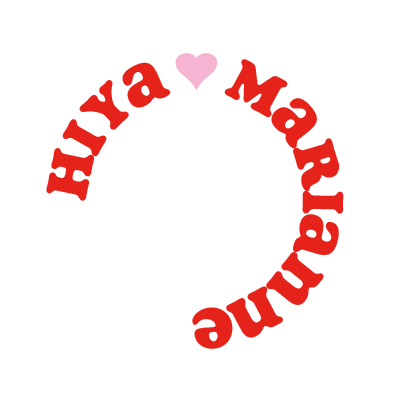
We’re not all meant to be the same, and those attributes that you feel might be holding you back could instead be the very things that make you stand out against your rivals.
This month, I want to discuss something we often keep hidden – our handicaps. While it can sometimes feel like we’re the only one suffering from something that can make running a business feel scary or difficult, I want to try to show you that not only are you not alone, but what you may perceive as a weakness can be the thing that makes you stand out in a crowded market.
Most of us have something that feels like a handicap – whether it’s a personality trait or an actual physical or mental disability – and so often, we let that pain point stop us from fully embracing the things we want to do or achieve. We feel like we can’t compete if we can’t do things the same way someone else does, or we worry that we can’t find clients that would look beyond our perceived weaknesses. I feel strongly that changing our mindset and viewing our personal handicaps as strengths and opportunities is not only possible but potentially a powerful way to stand out in a crowded market. I hope I can offer you alternative viewpoints that might allow you to think differently about what you feel is holding you back.
My own journey involves navigating my life and business with a neurodivergent brain. As many women, I got diagnosed later in life, so for a long time, I felt like I didn’t belong or that the way I was doing things was ‘wrong’ when I had merely adapted to doing them in a way that worked for me. Once I started to understand my brain and why it was often so hard to fit into spaces and places and standard ways of doing things, I started to appreciate how some of the things I perceived as handicaps were also the things that made my business unique. I realised how the systems I created for myself allow me to work much more efficiently, how seeing things a bit differently gives me a unique style and viewpoint, how being a lifelong student of human behaviour (out of necessity) can help me connect with my clients on a deeper level. When I know what doesn’t work for me – say, talking on camera or other ‘loud’ forms of promotion – I can lean into the ways that allow me to shine – using the written word, creating colourful content, and relying on robust systems that make clients feel supported on their own business journey. I’ve also realised how bottom-up thinking, typical for those with a similar brain to mine, allows me to gather the often vague briefs and references clients give me and work them into a strong concept that allows me to create work that resonates.
Before writing this column, I posted a question on social media, asking what kind of handicaps my audience struggles with regarding running their business. Below, I’ll share how we can frame the most frequently mentioned issues as a strength.
On the spectrum
Photographers on the autistic spectrum often have a unique perspective on the world, which can help them create unique and exciting images that stand out from the crowd. People on the spectrum often possess a natural attention to detail and a strong focus on their craft, which can translate into high-quality work that clients will appreciate. This ability to focus deeply on a particular subject could make them exceptional in a chosen narrow field. By highlighting these strengths and perspectives, photographers with autism can create a unique niche in the market. While being on the spectrum may make it difficult to communicate or connect with clients in traditional ways, the modern world provides many opportunities to reach out in alternative ways, whether blogging or finding a social media platform that feels more natural for communication.
ADHD
ADHD is a much more widely recognised condition these days, and it affects so many people who need to navigate the overwhelming quality of hectic modern life. Someone with ADHD often has a unique ability to hyperfocus on their work, which can translate into true innovation and images full of energy and life. They may also be able to work quickly and efficiently, which can be an advantage in a fast-paced industry like photography. Those with ADHD will benefit from solid systems as they may struggle with attention to detail or long-term planning, but they may also have a unique ability to think outside the box and come up with creative, innovative ideas. By embracing their strengths and having systems in place for where they may struggle, people with ADHD can often build highly successful businesses.
Physical disability
The one thing that always strikes me about people living with a disability or chronic illness is their strong sense of purpose. I believe going through life having to advocate for yourself at every turn gives you such a unique perspective, strength, and a life experience that can’t help but touch others. You could use your photography work to advocate for disability rights or create awareness about the challenges living with a disability. Being able to create work that is emotionally powerful and meaningful will absolutely help with connecting with potential clients. You may also have a very strong community with shared experiences who would love nothing more than work with someone who truly understands them.
A shy personality
One issue that came up repeatedly was having a shy personality. So many passionate and talented photographers hold themselves back in some business areas because of shyness. Shy photographers often have a natural ability to connect with people on a deeper level, which can help them to create more meaningful and emotional images. They may also put clients who are shy themselves at ease and make them feel more comfortable during a photoshoot. Even though networking or self-promotion can be super daunting for someone with a shy personality, there are so many ways of utilising social media and creating a solid online presence without interacting directly with your audience. You just need to drop other people’s expectations and stop listening to advice that says you MUST show up with your face to have a chance. Someone shy should focus on building relationships with smaller interactive networks of clients who appreciate their style and unique approach.
Remote location
This might seem like a weird thing to mention in a column about handicaps, but you’d be surprised how often I hear remote location as an excuse for not going after your dreams. Things like ‘you have to move to a bigger city if you want to be taken seriously or succeed’ are repeated as a mantra that stops so many from even trying. Of course, if you decide to specialise in skyscraper photography and live in the middle of the moors, you might have difficulty finding clients locally or else you’ll live your life on the road. But that does not mean that you couldn’t run a successful photography business from a remote location.
You can either leverage the uniqueness of your surroundings and figure out what kind of service would either draw clients to you, or find a gap in the market that would allow you to create work where the beauty of your specific location is a unique selling point in something like print sales or editorial photography. Or, you can create a business around photography where location doesn’t play a part at all. I am located in one of the country’s most remote spots on the South West coast, but I run a successful photo production company working with brands all over the world. The world really is very small these days, and leveraging online platforms will allow you to reach a wider audience from wherever you are.
Embrace standing out
I hope these examples show you how using personal handicaps as a USP can be a powerful way to stand out and attract clients looking for something unique and meaningful. It does require a deep understanding of yourself and a willingness to embrace your differences and turn them into strengths, but those things that feel like flaws can set you apart from the competition.
I want to end this column with some positive prompts. I hope some of them resonate with you, get you thinking, and help you smash through those doubts and step into your unique way of doing things!
Positive prompts
1. Expanding perspectives: How do your handicaps or unique qualities shape your creative vision and allow you to capture stories and moments that others might overlook?
2. Advocacy through art: How does your photography act as a medium for advocating for disability rights, social justice, or creating awareness about the challenges faced by individuals with handicaps?
3. Empowering others: How do you leverage your journey with handicaps or unique traits to inspire and uplift others within the photography community?
4. Unleashing creative adaptation: How do your unique circumstances or physical limitations spark creativity and lead to innovative approaches in your photography?
5. Celebrating diversity: How do you showcase the beauty and richness of diversity in your photography, breaking through societal barriers and promoting representation and inclusivity?
6. Amplifying unique perspectives: How does your unique background, cultural heritage, or life experiences influence the stories you tell through your photography?
7. Breaking beauty standards: How does your personal journey with body positivity, self-acceptance, or non-conventional beauty empower you to capture diverse and authentic beauty in your photography?
8. The art of compensating: How do you compensate for the challenges posed by your handicaps through innovative problem-solving, adaptive workflows, or collaboration with others?
9. Inclusivity as a superpower: How do you use your personal experience with disabilities or chronic conditions to advocate for inclusivity in the photography industry and create work that represents diverse perspectives?
10. The power of empathy: How does your lived experience with physical or mental challenges give you a deeper understanding and connection with your clients, enabling you to capture their essence and tell their stories through photography?
11. Out of the box perspectives: How do your differently wired brains, like dyslexia or synesthesia, enhance your creative vision and enable you to capture unique perspectives in your photography?
12. Harnessing neurodiversity: How do you leverage your neurodivergent traits, such as ADHD or autism, to enhance your creativity, focus, or problem-solving abilities in your photography business?

A version of this column was originally published in Professional Photo magazine issue 211.
